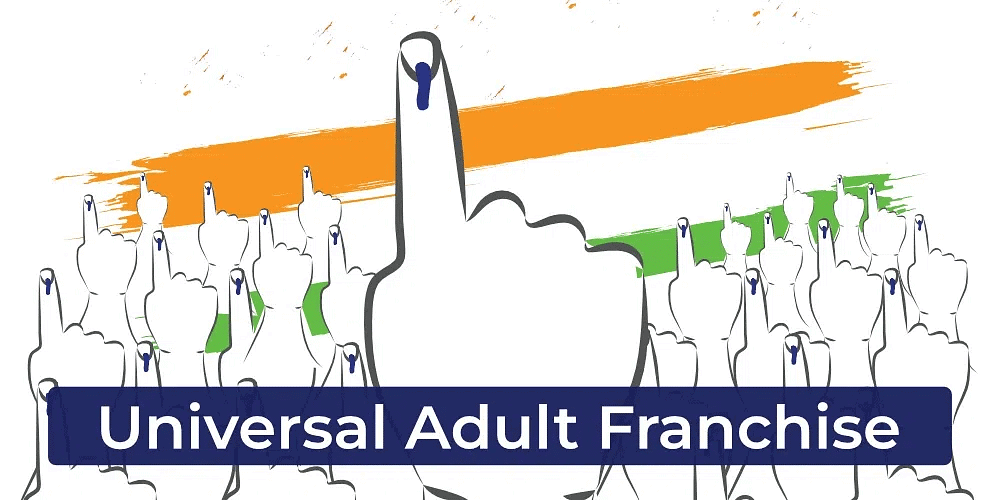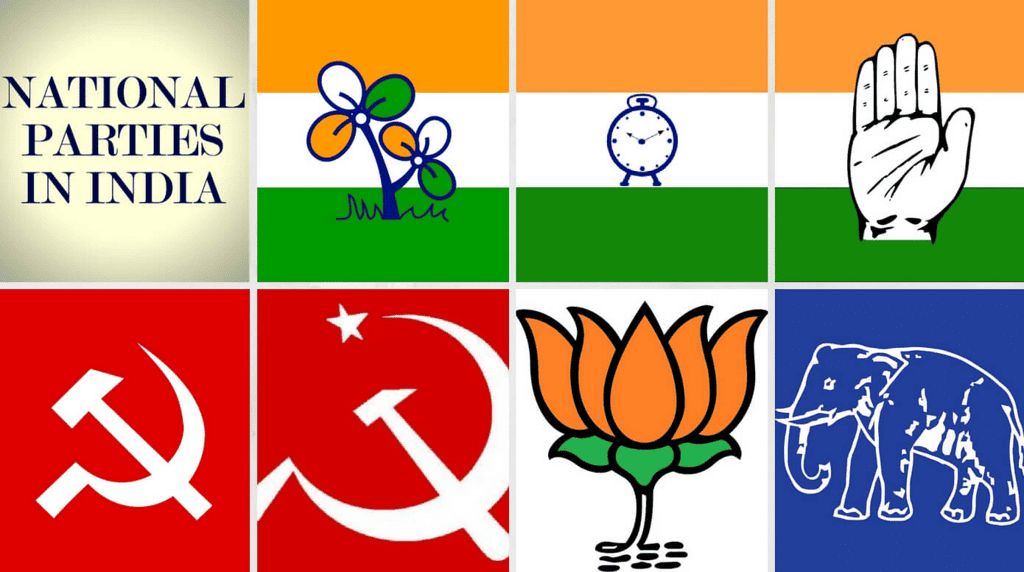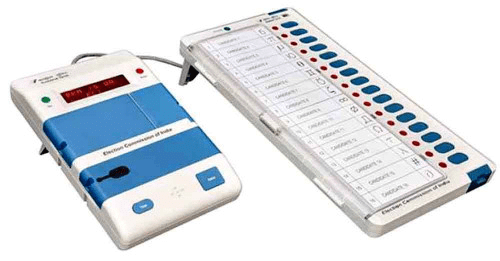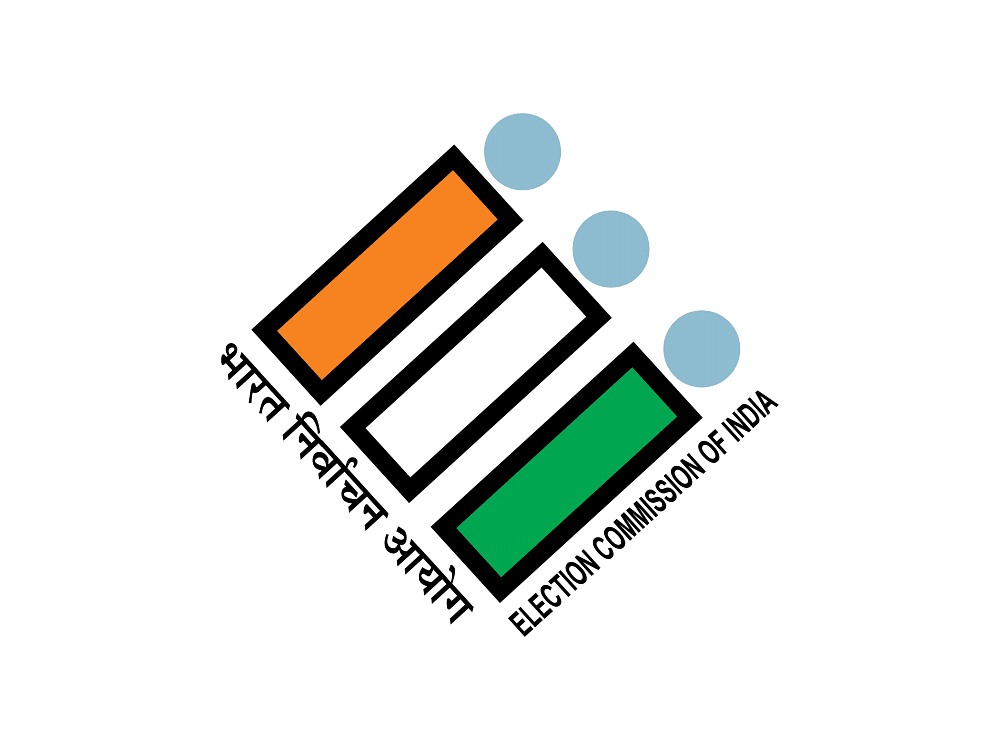Class 9 Civics Chapter 3 Extra Question Answers - Electoral Politics
1) Why do we have representative government in most democracies?
Answer: In most democracies, people rule through their representatives. Since it is not possible for everyone to have time and knowledge to take decisions on all matters, representation is needed.
Therefore in most democracies people rule through their representatives.
 Universal Adult Franchise
Universal Adult Franchise
2) What is the mechanism of Elections behind choosing the representatives of a democratic country?
Answer: The mechanism of elections behind choosing the representatives of a democratic country is the universal adult franchise. It ensures equality and uniformity amongst the masses by giving all people who have attained the age of 18 years the right to cast their vote in favor of their preferred representative. This process aims to ensure free and fair elections, where voters cannot be easily influenced, and confidentiality is maintained through the use of a secret ballot machine.
3) How are voters' choices fulfilled by Elections?
Answer: Elections enable voters to select their preferred lawmakers and representatives who can make significant governmental decisions. Additionally, they can vote for the specific political party whose policies align with their beliefs and preferences.
4) What choices do elections offer for choosing a political party?
Answer: Elections offer various choices for selecting a political party, as there should be multiple parties and candidates available to contest the elections. This provides voters with a genuine opportunity to choose a suitable political party to represent them in the parliament.
5) What kind of competition is offered to the people for elections?
Answer: The most obvious form is the competition among political parties. At the constituency level, it takes the form of competition among several candidates. If there is no competition elections will be pointless.
6) Give any two demerits of Electoral Competition.
Answer: Two demand of electoral competition:
(i) It creates a sense of disunity and factionalism in every locality.
(ii) Different political parties and leaders often level allegations against one another.
7) Give any two merits of Electoral Competition.
Answer: Two merits of Electoraal Competition are:
(i) Political leaders all over the world, like all other professionals, are motivated by a desire to advance their political careers.
(ii) They want to come into power and retain positions for themselves. So they do their best to win the hearts of people.
 Symbols of Political Parties in India
Symbols of Political Parties in India
8) How can political leaders be made accountable to the people?
Answer: It can be done by setting up a system where political leaders are rewarded for serving the people and punished for not doing good for the sake of the people. Regular electoral competition should be held through elections.
9) How do political leaders try to win the hearts of the voters?
Answer: Political leaders know that if they raise issues that people want to be raised, their popularity and chances of victory will increase in the next elections. But if they fail to satisfy the voters with their work they will not be able to win again.
10) How does political competition help the leaders to serve the people?
Answer:
- Political competition encourages leaders to focus on serving the public.
- Similar to a shopkeeper prioritizing customer service, politicians must prioritize the needs of the people.
- Although political competition can create divisions and negativity, it ultimately benefits the public.
- Parties and leaders are compelled to address the concerns of the people in order to maintain their support.
11) How are general elections held in India?
Answer:
- General elections in India occur for Lok Sabha and Vidhan Sabha.
- They take place every five years.
- The elected representatives' terms conclude after this period.
- These elections are known as general elections.
- All constituencies hold elections simultaneously.
12) What are By-Elections?
Answer: When elections are held only for one constituency to fill the vacancy caused by the death or resignation of a member. This is called By-Elections.
13) What are Electoral Constituencies?
Answer: The country is divided into different areas for the purposes of elections. These areas are called electoral constituencies.
14) How many constituencies do we have for Lok Sabha?
Answer: For Lok Sabha elections the country is divided into 543 constituencies.
15) What is an elected representative from the constituency is called?
Answer: The representative elected from each constituency is called a member of parliament or an MP.
16) What is an elected representative at the state level called as?
Answer: Each state is also divided into a specific number of Assembly constituencies. Here the elected representative is called the Member of Legislative Assembly or an MLA.
17) How are constituencies divided at the local level?
Answer: At Panchayati and municipal elections each village or town is divided into several 'wards' that are like constituencies. Each ward elects one member of the village or the urban local body.
18) Why were 'Reserved Constituencies' created by the makers of the constitution?
Answer:
- The creators of the constitution were concerned about the electoral chances of weaker sections in society.
- They believed that without special provisions, these groups might not be adequately represented in the Lok Sabha and State Legislative Assemblies.
- This lack of representation would make the democracy less inclusive and less democratic.
- To address this issue, the makers of the constitution developed the concept of 'Reserved Constituencies.'
- This special system ensures better representation for weaker sections, making the democracy more representative and democratic.
19) How many seats are reserved for SC & ST in Lok Sabha?
Answer: Currently in the Lok Sabha 79 seats are reserved for the scheduled caste and 41 for the scheduled tribe.
20) How many seats are reserved for women at local bodies?
Answer: One-third of the total seats are reserved in rural and urban local bodies for women candidates
21) What is a Voters' List?
Answer: In a democratic election the list of those who are eligible to vote is prepared much before the elections and given to everyone. This list is officially called the 'Electoral Roll' and is commonly known as 'Voters' List'.
22) What is the principle of universal adult Franchise?
Answer: In practice, it means that everyone should have one vote and each vote should have equal value. All the citizens aged 18 years and above have got the right to vote.
23) What is the Election Photo Identity Card System?
Answer: Every voter is issued this photo identity card by the Election Commission. The voters are required to carry this card when they go out to vote so that no one can vote for someone else.
 Voter ID/ Election Card
Voter ID/ Election Card
24) What is a party ticket?
Answer: Political parties nominate their candidates who get the party symbol and support. This party's nomination is often called the party 'ticket'.
25) How does a person file nomination papers?
Answer: Every person who wishes to contest elections has to fill a 'nomination form' and give some money as a 'security deposit'. This is how nomination papers are filed.
26) What are the legal declarations of a party candidate?
Answer: Details of assets and liabilities of the candidate and his or her family and Educational qualifications of the candidate.
27) Why has the personal information of a candidate to be made public?
Answer: This information needs to be made public as it provides an opportunity for the voters to make their decisions on the basis of the information provided by the candidates.
28) Why are election campaigns needed?
Answer:
- Election campaigns provide opportunity for people to choose representatives, government, and preferred policies.
- Enables free and open discussion about better representatives, parties, and policies.
- Facilitates informed decision-making during elections.
29) What is the time period of campaigning for elections?
Answer: In one country such campaigns take place for a two-week period between the announcement of the final list of candidates and the date of polling.
30) How are voters contacted during campaigning?
Answer: Voters contacted during campaigning through:
- Election meetings by political leaders.
- Mobilization of supporters by parties.
- Newspaper and television campaigns.
- Use of recorded mobile messages.
31) What is a ballot paper?
Answer: A ballot paper is a sheet of paper on which the names of the contesting candidates along with party name and symbols are issued.
32) What is a 'polling booth'?
Answer: On the election day every person whose name is on the voter's list can go to a nearby 'Polling Booth', situated usually in a local school or a government office. In this booth, voters go inside and election officials identify them and put a mark on his or her finger and allow them to cast the vote.
33) What is EVM?
Answer: EVMs are electronic voting machines, which are used to record votes.
 EVM
EVM
34) How is a vote cast on EVM?
Answer: The machine shows the names of the candidates and the party symbols. All the voter has to do is to press the button against the name of the candidate he or she wants to give a vote.
35) What do you know about the 'Election Commission'?
Answer: In our country elections are conducted by an independent and very powerful election commission. It enjoys the same kind of independence that the judiciary enjoys
36) How is the Chief Election Commissioner appointed?
Answer: The Chief Election Commissioner is appointed by the President of India. But once appointed, he is not answerable to the President or the government. It is virtually impossible to even by the ruling party to remove the Chief Election Commissioner.
37) What do you mean by 'Turn out'.
Answer: Turnout indicates the per cent of eligible voters who actually cast their vote.
38) Why do common people in India attach a lot of importance to elections?
Answer: They feel that through elections they can bring pressure on political parties to adopt policies and programmes favourable to them.
39) Are elections in India 'free and fair'?
Answer: Elections in India are basically free and fair. The party that wins an election and forms government does so because people have chosen it once. A few candidates may win on the basis of money power and unfair means. But the overall verdict of a general election still reflects popular preference.
40) Give anyone challenge of Indian Elections.
Answer: Some families tend to dominate political parties; tickets are distributed to relatives from the families.
41) What is 'booth capturing'?
Answer: Supporters or hired muscle men of a party or a candidate gain physical control of a polling booth and cast false votes by threatening everyone or by preventing genuine voters from reaching the polling booth.
42) What choices are given to a voter during elections?
Answer:
Choices given to a voter during elections are:
(i) They can choose who will make laws for them.
(ii) They can choose who will form the government and take major decisions.
(iii) They can choose the party whose policies will guide the government and law-making.
43) What forms does the political competition take during elections?
Answer: Political competition takes various forms such as:
(i) The most obvious form is the competition among political parties.
(ii) At the constituency level, it takes the form of competition among several candidates. (iii) If there is no competition, elections will become pointless.
44) How does electoral competition help the political parties and leaders to win the elections?
Answer: Electoral competition help the political parties and leaders to win the elections in folloewing ways:
(i) Regular electoral competitions provide incentives to political parties and leaders.
(ii) They know that if they raise issues that people want to be raised, their popularity and chances of victory will increase in the next elections.
(iii) But if they fail to satisfy the voters with their work, they will not be able to win again.
45) What is the 'Voters' List'?
Answer:
- In a democratic election, the list of those who are eligible to vote is prepared much before the election and is available to everyone.
- This list is officially called the Electoral Roll and is commonly known as the Voters' List. (iii) This is an important step as it is linked to the first condition of a democratic election.
46) How does the principle of 'Universal Adult Franchise' work in the Indian democracy?
Answer:
- In practice, a universal adult franchise means that everyone should have one vote and each vote should have equal value.
- No one should be denied the right to vote without good reason.
- Citizens differ from one another in many ways; some are rich, some are poor; some are highly educated, some are not; some are kind, others are not so kind. But all of them are human beings with their own needs and views. That is why all of them deserve to have an equal say in decisions that affect them.
47) What legal declaration is required to be submitted by each candidate who wishes to contest an election?
Answer: Every candidate has to make a legal declaration, giving full details of the following:
(i) Serious criminal cases pending against the candidate.
(ii) Details of the assets and liabilities of the candidate and his or her family.
(iii) Educational qualifications of the candidate. This information helps voters to make their decisions.
48) What is an Election Commission? Who appoints the Chief Election Commissioner and how can he/she be removed?
Answer:
- In our country, elections are conducted by an independent and very powerful Election Commission. It enjoys the same kind of independence as the Judiciary enjoys.
- The Chief Election Commissioner is appointed by the President of India. But once appointed, he is not answerable to the president of the government.
- Even if the ruling party or the government does not like the Chief Election Commissioner it is virtually impossible for it to remove the CEC.
 Symbol of Election Commission of India
Symbol of Election Commission of India
49) What is an Election Commission? What is its role in the elections?
Answer:
In our country, elections are conducted by an independent and very powerful Election Commission. It enjoys the same kind of independence that the judiciary enjoys. The Chief Election Commissioner (CEC) is appointed by the President of India. But once appointed, he is not answerable to the President or the government.
The functions of Election Commission are:
- The Election Commission prepares the list and issues the identity card to voters.
- The Election Commission is to prepare the timetable for the election.
- It's the responsibility of the Election Commission to conduct an election in a state.
- The Election Commission allows the eligible candidate to contest the election.
- The Election Commision has the responsibility to resolve the disputes that may arise during the election.
50) What is the outcome of free and fair elections held in India?
Answer:
- The ruling parties routinely lose elections in India, both at the national and state levels.
- In India, about half of the sitting MPs or MLAs lose elections.
- Candidates who are known to have spent a lot of money in 'buying votes' and those with criminal connections often lose elections. Barring very few disputed elections, the electoral outcomes are usually accepted as the people's verdict by the defeated party.
51) Mention any three powers and functions of the Election Commission of India.
Answer: Powers and Functions of Election Commission of India:
(i) To conduct and control the elections.
(ii) To implement the code of conduct.
(iii) To order the government to follow guidelines.
(iv) To prevent the use and misuse of government machinery at the time of election.
52) How do general elections differ from by-elections?
Answer: When elections are held in all the constituencies at the same time, either on the same day or within few days, this is called general elections. Sometimes, the election is held only for one constituency to fill the vacancy caused by the death or resignation of a member. This is called a by-election.
53) How are constituencies for Lok Sabha decided by the Election Commission?
Answer:
(i) For the Lok Sabha elections, the country is divided into 543 constituencies.
(ii) The representative elected from each constituency is called a Member of Parliament or an MP.
(iii) One of the features of a democratic election is that every vote should have equal value. That is why our constitution requires that each constituency should have a roughly equal population living within it.
54) How is the division of constituencies done at the state level?
Answer:
- Each state is divided into a specific number of Assembly constituencies on the basis of their population size.
- In this case, the elected representative is called a Member of Legislative Assembly or an MLA.
- Each parliamentary constituency has several assembly constituencies within it.
55) How has the reservation system been extended to other weaker sections?
Answer:
- The system of reservation was extended later to other weaker sections at the district and local level.
- In many states, seats in rural and urban local bodies are now reserved for Other Backward Classes (OBCs) as well.
- However, the proportion of seats reserved varies from state to state. Similarly, one-third of the seats are reserved in rural and urban local bodies for women candidates
|
55 videos|525 docs|78 tests
|
FAQs on Class 9 Civics Chapter 3 Extra Question Answers - Electoral Politics
| 1. What is electoral politics? |  |
| 2. How does the electoral process work? |  |
| 3. Why is it important to participate in electoral politics? |  |
| 4. What is the role of political parties in electoral politics? |  |
| 5. How does electoral politics promote accountability? |  |

















